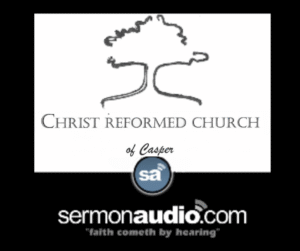The Chief Part of our Thankfulness: Heidelberg Catechism Lord’s Day 45
LORD’S DAY 45 Why is prayer necessary for Christians? Because it is the chief part of thankfulness which God requires of us,1 and because God will give His grace and Holy Spirit only to those who earnestly and without ceasing ask them of Him, and render thanks unto Him for them.2 [1] Ps. 50:14–15. [2] Matt. 7:7–8; Lk. 11:9–10, 13; Matt. 13:12; *Eph. 6:18. What belongs to such prayer which is acceptable to God and which He will hear? First, that with our whole heart1 we call only upon the one true God, who has revealed Himself to us in His Word,2 for all thatRead More →

